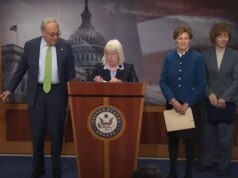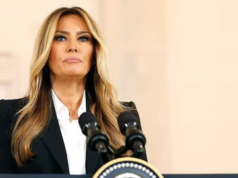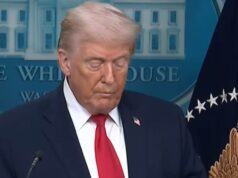Brazil’s recent municipal elections dealt a significant blow to the ruling Workers’ Party (PT) of Lula Da Silva, as it failed to secure any mayoral seats in the state capitals during the first round.
According to the Brazilian outlet Oeste, the right-wing and center-right candidates overwhelmingly defeated the PT, demonstrating a widespread shift in voter sentiment. For those less familiar with Brazilian politics, municipal elections take place in two stages, and the first round has just concluded. Brazil comprises 26 states and a federal capital.
The defeat was so extensive that the PT now only has a chance to win in four major cities in the upcoming second round: Natal, Cuiabá, Fortaleza, and Porto Alegre. In these cities, PT-backed candidates placed second. In all other state capitals, the party failed to secure a top-two finish.
The 2024 election results reflect a broad disillusionment with the Workers’ Party nationwide, as it faced losses in every state, underscoring growing dissatisfaction with Lula’s administration.
In 2022, Lula’s presidential victory was bolstered by strong support in cities like Belo Horizonte. However, just two years later, the Bolsonaro-backed candidate, Bruno Engler, is leading the municipal race there, with PT-endorsed Fuad Noman trailing in second. Both candidates are set for a runoff.
This pattern of losses extended to several states where Lula allegedly won in 2022. In cities such as Alagoas, Macapá, Salvador, São Luís, Recife, Teresina, Rio de Janeiro, and Aracaju, Bolsonaro-backed candidates emerged victorious in the first round of municipal voting.
While local outlets have not emphasized it, the 2022 election data is telling. Bolsonaro won four of Brazil’s five regions in that election, despite Lula’s official victory. Bolsonaro consistently drew massive crowds at rallies, while Lula struggled to gather significant support, often requiring heavy security for public appearances.
Questions regarding the legitimacy of the 2022 election results have persisted, with accusations of electoral fraud presented by the Argentine outlet La Derecha Diario. Instead of addressing these allegations, Brazilian courts opted to ban the portal in Brazil. Additionally, the judiciary has banned discussions of Lula’s alleged ties to drug trafficking and pressured social media platforms to suppress Bolsonaro supporters’ voices.
Now, it appears that Brazilian voters are expressing their dissatisfaction at the ballot box, signaling a clear rejection of Lula’s leadership and policies. The outcome of the second round will further indicate whether this discontent translates into a broader political shift.
María Herrera Mellado es una abogada de EE.UU. y licenciada en España. Doctora en Ciencias Jurídicas y Analista política. La Dra. Herrera es conocida por su amplia experiencia en análisis y consultas en el diseño de políticas públicas, propuestas de ley y gestión en relaciones internacionales.
Su reconocimiento proviene de sus contribuciones al análisis y representación legal de diversas organizaciones, empresas e individuos que han visto abusados sus derechos humanos, su privacidad o en la inclusión de políticas efectivas fundamentalmente en el ámbito de la transparencia y la rendición de cuentas, así como la lucha contra la corrupción.
Su formación académica y experiencias profesionales la convierten en una voz respetada en el debate público y en el análisis de temas de actualidad sobre todo en los desafíos políticos y legales contemporáneos.
María Herrera Mellado is a U.S.-based attorney also licensed in Spain. She holds a PhD in Legal Sciences and is known as a media legal and policy analyst.
Dr. Herrera is recognized for her extensive experience in analyzing and consulting on public policy design, legislative proposals, and international relations management.
Her recognition stems from her contributions to the analysis and legal representation of various organizations, companies, and individuals whose human rights or privacy have been violated, or who have benefited from the inclusion of effective policies, primarily in the areas of transparency, accountability, and the fight against corruption.
Her academic background and professional experience make her a respected voice in public debate and in the analysis of current issues, particularly in contemporary political and legal challenges.











